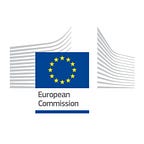Globalisation: The European perspective
Global interaction is centuries old, reflecting a human instinct to find new opportunities, discover new people and places, and the exchange ideas and goods. Rather than sitting back and letting globalisation shape our destinies, we have the opportunity to shape globalisation in line with our own values and interests.
The reflection paper on harnessing globalisation published on 10 May 2017 contributes to the ongoing debate about the future of Europe. It aims to make a fair and evidence-based assessment of what globalisation means for Europe and Europeans.
Here are some highlights.
Opportunities
A more connected world has brought us new opportunities. Global climate action, international competition, scientific cooperation and exchange of ideas have all stimulated creativity and accelerated innovation.
More and more stakeholders — citizens, civil society groups, businesses and municipalities — are able to engage their peers anywhere around the globe and work together to tackle common problems.
Challenges
At the same time, the world faces more and more transnational challenges. Criminals and terrorists continue to exploit openness and use new technologies to pursue illicit trades or spread hatred.
From terrorist threats to unprecedented migration flows, financial crises, health pandemics and climate change — even the biggest and richest countries no longer have the capacity to deal with the challenges they face alone.
In today’s world, global cooperation is increasingly essential.
Fears
Many citizens feel that globalisation directly threatens their identities and traditions, their cultural diversity and their ways of living. Citizens are anxious about not being able to control their future. This is due to the perception that governments are no longer in control, not able or not willing to manage globalisation and its impacts in a way that benefits everyone. This is the political challenge we have to confront.
How do the EU countries approach globalisation?
On the one side we can witness the tendencies of isolation
Changes associated with globalisation cause some countries to isolate themselves from what is happening around them. This is particularly acute in regions that have been left behind; some want to put up barriers and close borders.
On the other side, we can see countries taking advantage
At the opposite end, other countries let globalisation take its course in the belief that self-regulating markets would ultimately ensure the best outcomes.
“There is no protection in protectionism, but there is isolation in isolationism.”
First Vice-President Timmermans
Dangers of isolationism and protectionism
Majority of European citizens recognise that protectionism does not protect. It may provide short-term relief, but history shows that it has never had lasting success, but instead has led to disastrous outcomes.
If we close our borders, others will do the same. We would all be losers.
This is especially true for Europe with its high integration into global value chains. Protectionism can potentially disrupt production and increase costs and prices for consumers, while European exports can become less competitive putting even more jobs at risk.
By hitting the poorest citizens hardest with price increases, protectionism would have the opposite of its desired effect.
How to prevent potentially harmful effects of globalisation?
To avoid the downward spiral, multilateral institutions and rules need to enable countries to take collective action in the areas of global economy, climate change and tax avoidance.
Without these actions, the more powerful countries and companies could impose their rules and interests on weaker ones. This would run against EU’s founding values of cooperation, the rule of law, equal rights and solidarity upon which the EU is built.
“Europe must help rewrite the global rulebook so that free trade becomes fair trade. So that globalisation becomes sustainable and works for all Europeans.”
First Vice-President Timmermans
On the external front
In order to effectively address the challenges of a globalised world, the EU’s development efforts need to go beyond aid. They need to bring together investment and trade, private sector contributions, domestic resource mobilisation, the promotion of good governance, the rule of law and human rights, with a particular focus on youth, gender equality and the empowerment of women.
The wide network of EU Delegations in the world can help European businesses — especially small and medium enterprises — succeed in global markets.
While standing for openness and cooperation, the EU cannot be naive in its approach to globalisation.
On the home front
Even if Europe already has the most equal and inclusive societies in the world, we need to continuously strengthen and adapt our policies for the future and address inequalities.
“To preserve the benefits of openness but also address its drawbacks, Europe must act resolutely against unfair practices, make our societies more resilient and our economies more competitive.”
Vice-President Katainen
The way EU countries address social issues is very diverse. Approaches developed in one country, region or town may not necessarily work elsewhere.
While the benefits of globalisation are widely spread, the costs are often localised. Fundamental economic transformation happens at the local level, where industry and people interact. We therefore need to target regional and local investment needs, skills gaps and regulatory obstacles to ensure that all regions are equipped to deal with the challenges of globalisation.
EU structural and investment funds help promote essential investments to improve infrastructure, innovation, and support the development of human capital and employment.
Strengthening the resilience of rural communities that are at risk of being left behind by globalisation or demographic change requires special attention.
The future of Europe amidst globalisation
Globalisation and the interrelated technological change is transforming our lives at an unprecedented speed. The EU is trying to find a common understanding to effectively manage this transformation.
That is why the debate on the future of Europe, launched by the white paper, is so important.
For more information, read the full reflection paper on harnessing globalisation as well as the previous blog post in the series, featuring the reflection paper on the social dimension of Europe, published on 27 April.
